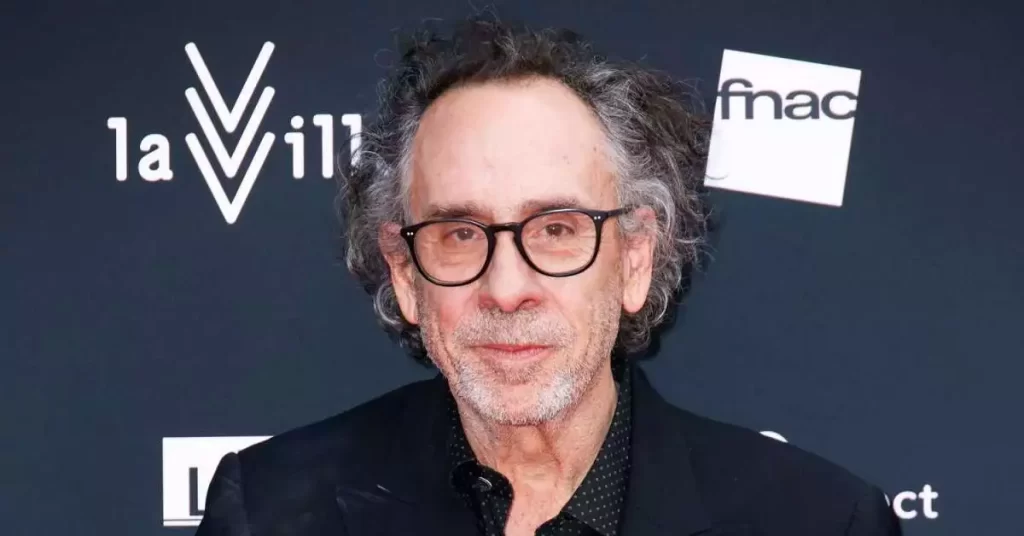“Beetlejuice” director Tim Burton Criticizes Artificial Intelligence Mimicry
In the ever-evolving landscape of cinema and technology, a clash of creativity and artificial intelligence has emerged, sparking a debate that resonates far beyond the confines of Hollywood studios. Renowned filmmaker Tim Burton, celebrated for his unique and haunting gothic aesthetic in iconic films like “The Nightmare Before Christmas,” “Edward Scissorhands,” and “Corpse Bride,” found himself in the midst of this debate. His reaction to witnessing his distinctive cinematic style replicated by artificial intelligence served as a poignant commentary on the intersection of art, technology, and humanity.
The story unfolded in July when Buzzfeed, a digital media platform, employed an AI generator to recreate images of beloved Disney characters – Elsa from “Frozen,” Ariel from “The Little Mermaid,” and Aurora from “Sleeping Beauty” – infused with Burton’s signature gothic style. The outcome was a visual spectacle, a fusion of Disney’s beloved characters with the eerie charm that defines Burton’s work. This experiment, however, had far-reaching implications, as it delved into the realm of artistic originality, creative identity, and the impact of artificial intelligence on the human spirit.
In an interview with The Independent, Tim Burton shared his visceral reaction to witnessing AI-generated versions of his artistic creations. He described the experience as akin to a profound loss, comparing it to the sensation of having one’s soul or humanity extracted. “What it does is it sucks something from you. It takes something from your soul or psyche; that is very disturbing, especially if it has to do with you,” said Burton. His words echoed the sentiments of artists and creators who grapple with the encroachment of technology into the sacred space of artistic expression.
Burton’s analogy was striking: “It’s like a robot taking your humanity, your soul.” In this simple yet profound statement, he encapsulated the existential fear that many artists face in the age of AI – the fear of losing the essence of what makes their creations uniquely human. The intricate blend of emotions, imagination, and personal experiences that artists infuse into their work is at risk of being diluted, if not entirely lost, in the digital realm of algorithms and artificial intelligence.
Beyond the personal impact on Burton, his critique delved into the broader societal conversation about the ethical implications of AI in creative industries. The line between homage and imitation, creativity and replication, becomes blurred when artificial intelligence enters the picture. While acknowledging the technical prowess of the AI-generated artworks, Burton underscored the profound emotional toll it took on him. This sentiment resonated with artists, writers, and creators who grapple with the intangible yet essential element of their craft – the human touch.
Burton’s reflection on the AI replication of his style as “The Nightmare Before AI” aptly captured the chilling apprehension that permeates the creative community. The fear of losing creative agency, originality, and the essence of human connection in art became a rallying point for artists and their advocates. One such advocate was acclaimed actor Bryan Cranston, who took a stand against the encroachment of AI during the Hollywood actors’ strike.
Speaking passionately at the SAG-AFTRA “Rock the City For a Fair Contract” rally in Times Square, Cranston addressed Disney CEO Bob Iger directly, challenging the industry’s trajectory toward automation. He emphasized the importance of dignity and human labor in the face of technological advancements. “We will not be having our jobs taken away and given to robots. We will not have you take away our right to work and earn a decent living,” Cranston declared, his words echoing the sentiments of countless professionals in the entertainment industry.
The collision of artistic expression and artificial intelligence forces society to grapple with profound questions. What is the future of creativity when algorithms can replicate the artistic styles of renowned creators? How do artists maintain their unique voice and vision in an era dominated by digital mimicry? These questions transcend the boundaries of entertainment and seep into the very fabric of human identity, challenging the essence of what it means to create, innovate, and connect.
As the debate rages on, one thing remains clear: the intersection of art and artificial intelligence demands careful consideration, ethical reflection, and a steadfast commitment to preserving the core of human creativity. Tim Burton’s poignant reaction, framed within the context of his iconic cinematic legacy, serves as a powerful reminder that the soul of art resides in the human spirit, a realm that must be safeguarded amidst the digital tide.In the face of AI’s growing influence, artists, industry leaders, and society at large must navigate this intricate terrain with sensitivity, awareness, and a profound appreciation for the unparalleled depth of human expression. The future of creativity hangs in the balance, waiting to be shaped by the choices we make today.



